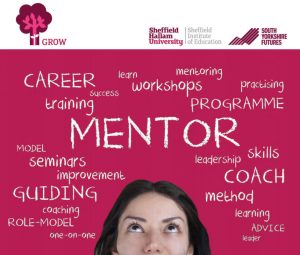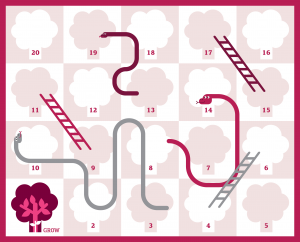 My name is Abigail Roberts, and I graduated from Sheffield Hallam University in Occupational Therapy in 2020. As a future occupational therapist, mentoring is a big part of the role. We have a mentor-type relationship with clients, have peer-mentor relationships with colleagues and are encouraged to mentor others thoughout our careers. Alongside developing my skills as a mentor, I have also gained valuable experience working with young people which has given me insight into the challenges young people face, especially in light of the pandemic and the effect this is having on them.
My name is Abigail Roberts, and I graduated from Sheffield Hallam University in Occupational Therapy in 2020. As a future occupational therapist, mentoring is a big part of the role. We have a mentor-type relationship with clients, have peer-mentor relationships with colleagues and are encouraged to mentor others thoughout our careers. Alongside developing my skills as a mentor, I have also gained valuable experience working with young people which has given me insight into the challenges young people face, especially in light of the pandemic and the effect this is having on them.
As a graduate mentor on the GROW Programme since November 2020, what has become to clear to me is that mentoring on an individual level is essential during this time. My experience speaking to the 15-16 year-old students has highlighted how policymakers tend to misunderstand the realities of being a young person in the UK and I think the historical focus on subject-only mentoring demonstrates this. Unfortunately, not everyone has access to a quiet room, technology, wifi or even space to work. Some of my young people are carers and others previously relied on the stability and structure offered by a school environment to keep their routines going. Furthermore, young people are acutely aware the rug may be pulled out from under their feet at any time – as seen by last year’s predicted grades debacle and this year’s U-turn on keeping schools open. As a result, focus on the individual is essential to ensure students have someone to talk to about their fears, a safe space to ask questions and be honest about their anxieties about the future and someone to signpost them.
 The focus throughout this pandemic (rightly so) has been on protecting vulnerable members of society. However, as we approach 12 months of lockdowns, I believe that the GROW student-centred approach is vital in ensuring that students’ futures don’t become unforeseen casualties of this pandemic. In short, no amount of subject mentoring will address the damage and, frankly, trauma young people have experienced during this time. Many of my students struggle to see the point of revision or college when there are “bigger problems at the moment” that swallow most of their time and energy.
The focus throughout this pandemic (rightly so) has been on protecting vulnerable members of society. However, as we approach 12 months of lockdowns, I believe that the GROW student-centred approach is vital in ensuring that students’ futures don’t become unforeseen casualties of this pandemic. In short, no amount of subject mentoring will address the damage and, frankly, trauma young people have experienced during this time. Many of my students struggle to see the point of revision or college when there are “bigger problems at the moment” that swallow most of their time and energy.
In my work as a mentor I strive to motivate the students to not only look ahead but to also acknowledge what has happened/is happening to them and try to frame these experiences so they serve us, not hinder us. One of the activities we do together is ‘Snakes and Ladders‘, an exercise in looking at what moves us forward and what holds us back. Having a mentor to keep them accountable and encourage them to keep moving forward, while empathising with their position and hearing them out, is essential to ensure students don’t disengage from school entirely. I think some of my students log onto my sessions just to have someone listen to them and to be honest with them and then they go to lessons or look at what they will do after this year, which they may not have done otherwise. For me, my approach is about encouraging students to see light at the end of the tunnel, while acknowledging how scary and difficult it is to still be in the dark.